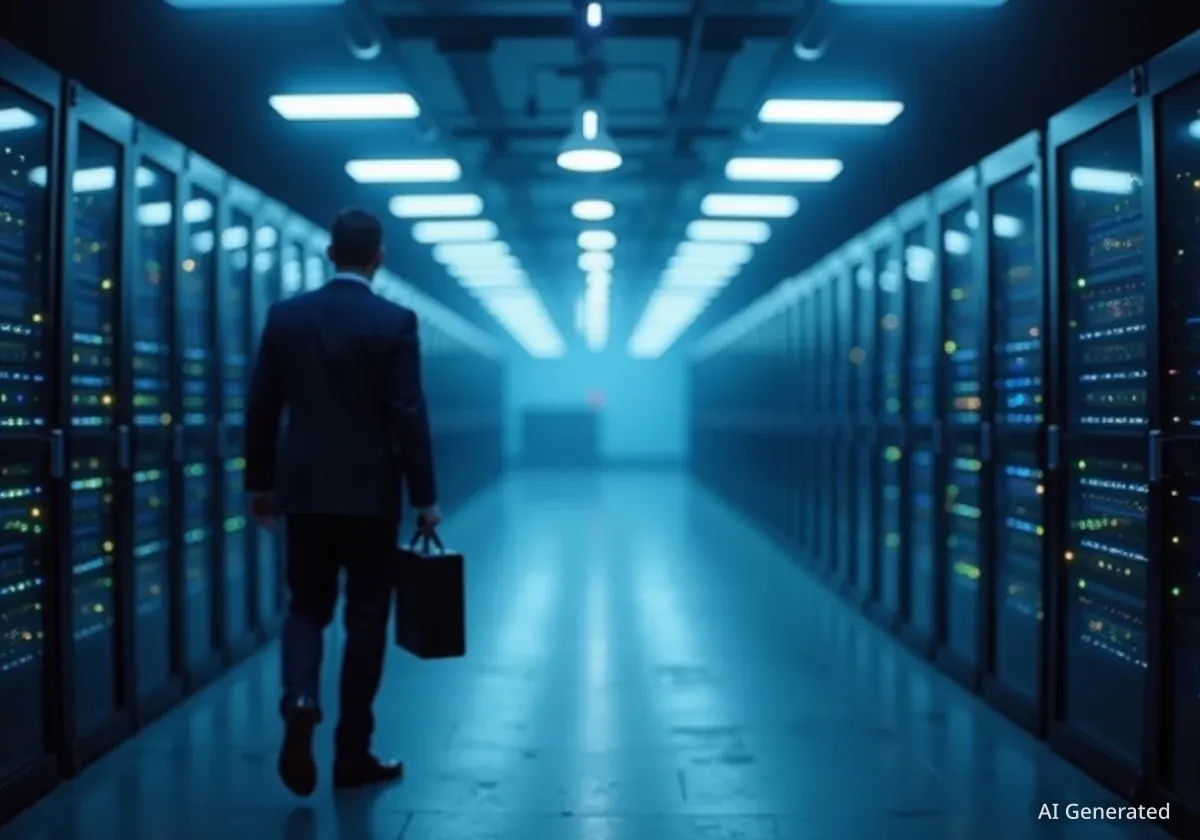A top executive from ASML, Europe's most valuable technology company, has stated that the European Union's regulatory approach to artificial intelligence is causing a talent drain. According to ASML Chief Financial Officer Roger Dassen, the EU's focus on regulation first is pushing skilled AI professionals to leave for Silicon Valley.
The comments highlight growing friction between major European technology firms and EU policymakers over the implementation of the AI Act. Dassen argued that this regulatory climate makes it difficult for Europe to compete in the global AI landscape and retain its top talent.
Key Takeaways
- ASML's CFO, Roger Dassen, claims the EU's AI regulation strategy is counterproductive to innovation.
- He stated that talented AI professionals are choosing to move to Silicon Valley due to Europe's restrictive environment.
- Dassen also expressed concern that major European tech companies lack sufficient protection amid US-China geopolitical tensions.
- The executive called for a completed EU capital markets union to improve funding for startups aiming to scale up.
A 'Regulation First' Strategy
During a campaign event in Eindhoven for the Dutch political party Christian Democratic Appeal, Roger Dassen voiced his criticism of the EU's legislative priorities concerning artificial intelligence. He suggested that the bloc's approach has been to control the technology rather than foster its growth.
"Why is it so difficult to get AI done in Europe? Simply because we started with regulating, to keep AI under the thumb," Dassen remarked at the event.
He argued that this environment creates a direct incentive for skilled individuals to leave the continent. According to Dassen, the result is a significant loss of intellectual capital for Europe's technology sector.
"Someone who has a talent for artificial intelligence, the first thing they do with their hard-earned money ... is buying a ticket to Silicon Valley," he explained, illustrating the perceived 'brain drain' to the United States.
ASML's Role in the Tech World
ASML, based in the Netherlands, is a critical player in the global semiconductor industry. The company manufactures the advanced photolithography machines required to produce the world's most sophisticated microchips. Its technology is essential for major chipmakers like TSMC, Samsung, and Intel.
Corporate Concerns in a Geopolitical Contest
Beyond the issue of talent retention, Dassen raised concerns about the level of support European technology champions receive from the EU. He questioned whether companies like ASML, Airbus, and Nokia are adequately protected in the ongoing technological and economic competition between the United States and China.
"You should ask the Airbuses, the Nokias, the ASMLs ... whether they feel protected by Europe at all times in this huge struggle of power that takes place between the United States and China," Dassen said. He added, "The answer won't always be yes."
These comments come as the Netherlands has faced significant pressure from the U.S. government. Washington has urged Dutch authorities to restrict ASML's ability to sell its most advanced chip-making equipment to companies in China, citing national security concerns.
Access to EU Policymakers
Separately, ASML's top lobbyist, Frank Heemskerk, recently noted the difficulty in engaging with EU officials. At a summit in Brussels, he stated, "It’s easier to get a meeting in the White House with a senior official than to get a meeting with a commissioner," quoting a former company executive.
ASML's Opposition to the AI Act
Dassen's statements are part of a broader campaign by ASML and other technology companies against the current form of the EU's AI Act. The legislation, which aims to create a comprehensive legal framework for AI, has been met with resistance from parts of the industry.
In July, ASML executives were among the signatories of a letter from 46 companies that called for a two-year pause on the implementation of yet-to-be-enforced sections of the law. The companies argued that more time was needed to assess the potential impact on innovation and competitiveness.
ASML has also increased its direct influence in the European AI sector. In September, the company became the largest shareholder in the French AI firm Mistral following a €1.3 billion investment. This move positions ASML as a major voice in the continent's AI development and policy discussions.
Call for Better Startup Funding
Dassen also addressed the financial ecosystem for technology companies in Europe. He urged EU leaders to finalize the creation of a capital markets union, a long-standing project to create a single, integrated market for capital across all member states.
He argued that while Europe is proficient at nurturing new companies, it struggles to support them as they grow. A unified capital market would provide startups with better access to the funding necessary to expand their operations and compete on a global scale.
"We are very good at startups, we're worthless at scale-ups," Dassen stated, emphasizing the need for a more robust financial infrastructure to support growing technology firms within the EU.





